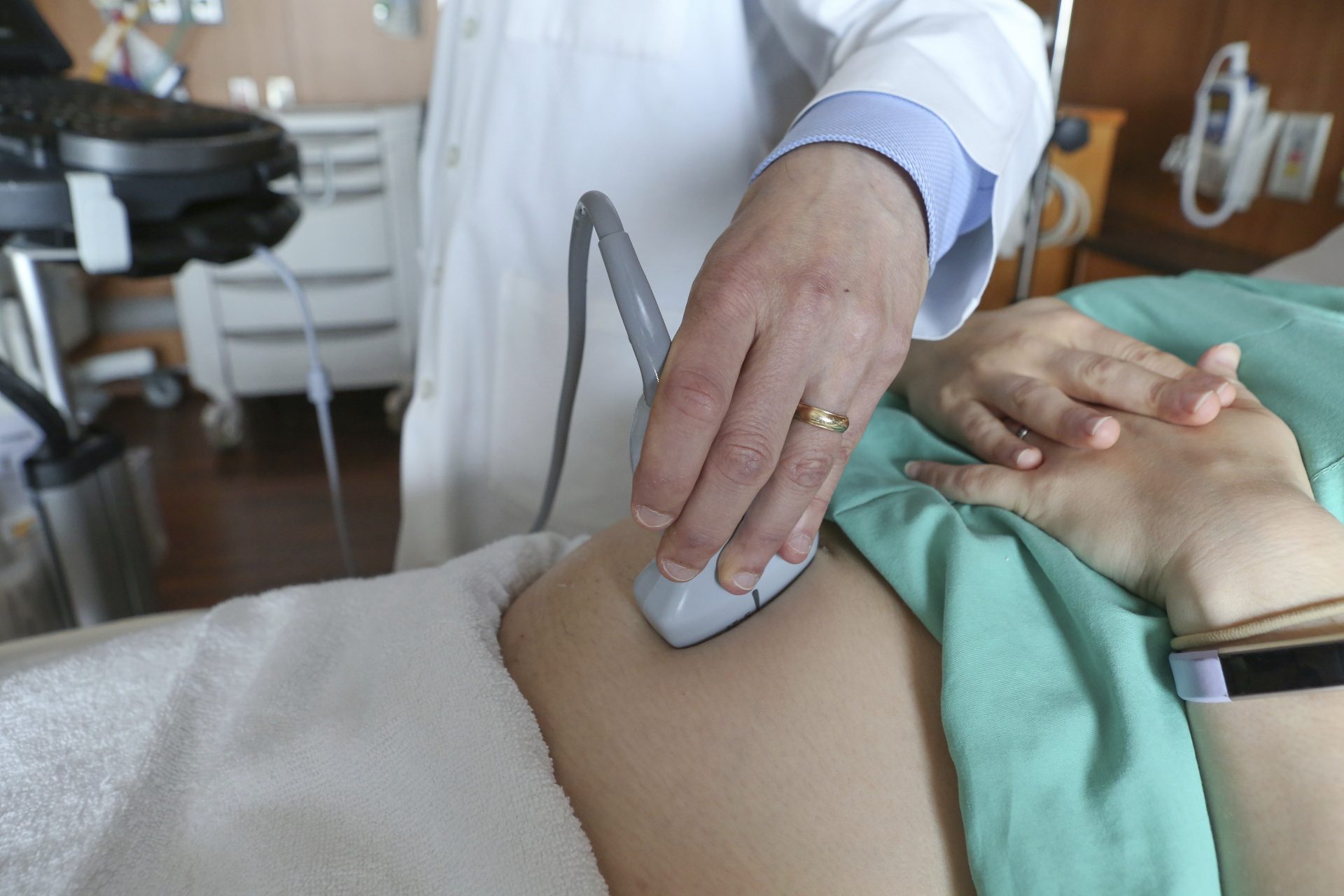
Aug. 7, 2018 | A doctor performs an ultrasound scan on a pregnant woman at a hospital in Chicago. (AP Photo/Teresa Crawford, File)


Aug. 7, 2018 | A doctor performs an ultrasound scan on a pregnant woman at a hospital in Chicago. (AP Photo/Teresa Crawford, File)
StateImpact editor Logan Layden talks with health reporter Catherine Sweeney about the new program. State officials have been pursuing the extension for months, and they held a press conference this week to announce they got the federal permission needed to extend coverage for one year after delivery.
Layden: Catherine, what was the policy before and how has it changed?
Sweeney: So even before we expanded Medicaid, we had low-income moms getting special coverage, and that coverage would run 60 days after they gave birth. But this is changing. So instead of it running for 60 days, it’ll last 12 months after delivery. And then also more low income workers will qualify. It used to allow anybody who made 150% of the federal poverty level to enroll. And just a little background on that, the federal poverty level is basically the amount of money you would need to make to not starve to death. Bureaucrats in Washington calculate that it’s not how much money you need to pay your rent. It’s literally how much money you need to just pay for food. Oklahoma bumped that up and now it’s 205% of the federal poverty level. That’s $28,000 a year for a single person and $58,000 a year for a family of four. Again, that’s the 205% rate. That’s what the cutoff is now. So more people are going to qualify. And when they do, they’re going to keep those benefits for longer.
Layden: Why are supporters pushing to make benefits last a whole year?
Sweeney: The long and the short of it is that several pregnancy related health problems last for months after delivery. Two major ones are heart issues and diabetes. Oklahoma already has a high rate of both of those issues. Officials during a press conference this week specifically mentioned that the extended coverage will cover diabetes equipment like test strips. Here’s Secretary of Health Kevin Corbett. He really dived into this issue during the press conference this week.
Corbett: Nationally, one third of maternal deaths occur in the postpartum period, including up to one year after childbirth, and almost 12% occur past the six week postpartum visit. More than half of these deaths are preventable and are often related to chronic conditions such as diabetes, hypertension, mental illness and substance abuse or misuse. Additionally, postpartum depression affects one in nine new moms and is particularly common in low income mothers. Up to 60% of low income moms reported depression symptoms.
Sweeney: Also during that press conference, a new mom, Cierra Pollard, talked about what she wishes would have been covered in the months after she gave birth: dental work. Pregnancy can be hell on teeth. It increases levels of hormones in the body like progesterone, and that can make your gums hold on to your teeth more loosely, and that can allow them to fall out. They could also make your gums more sensitive and prone to bleeding, which leads some moms to stop brushing their teeth as often because it hurts and they don’t want blood in their mouths. Obviously, that can further cause damage. Throwing up for morning sickness can erode your teeth and give you cavities. I mean, it just goes on and on. So, yeah, there’s all that. There’s mental health issues, all kinds of problems that kind of run well past 60 days and even even life threatening conditions can crop up after 60 days. So the hope is this will make new moms healthier. And it will also keep from having our rising maternal mortality rate get even worse.
Layden: And this decision is popular, it seems.
Sweeney: Yeah, it’s a rarity, but there’s little to no disagreement with the policy. So progressives tend to push for increased publicly funded health care, especially for low income workers. And Oklahoma conservatives are pushing hard for maternal health initiatives after banning nearly all abortions in the state. That has been like a big political talking point after the Dobbs decision allowed Oklahoma’s abortion bans to stay in place there, saying, we’re going to make it better for these new moms. This policy actually came out of a task force that Governor Kevin Stitt established after the abortion bans that was designed to look into how the state can support these new moms. So, of course, there is some criticism that Oklahoma’s not doing enough to improve maternal health, especially considering that we’re going to have so many more people giving birth and maybe want to because of the abortion bans. But other than that, no one is saying this policy isn’t worthwhile.